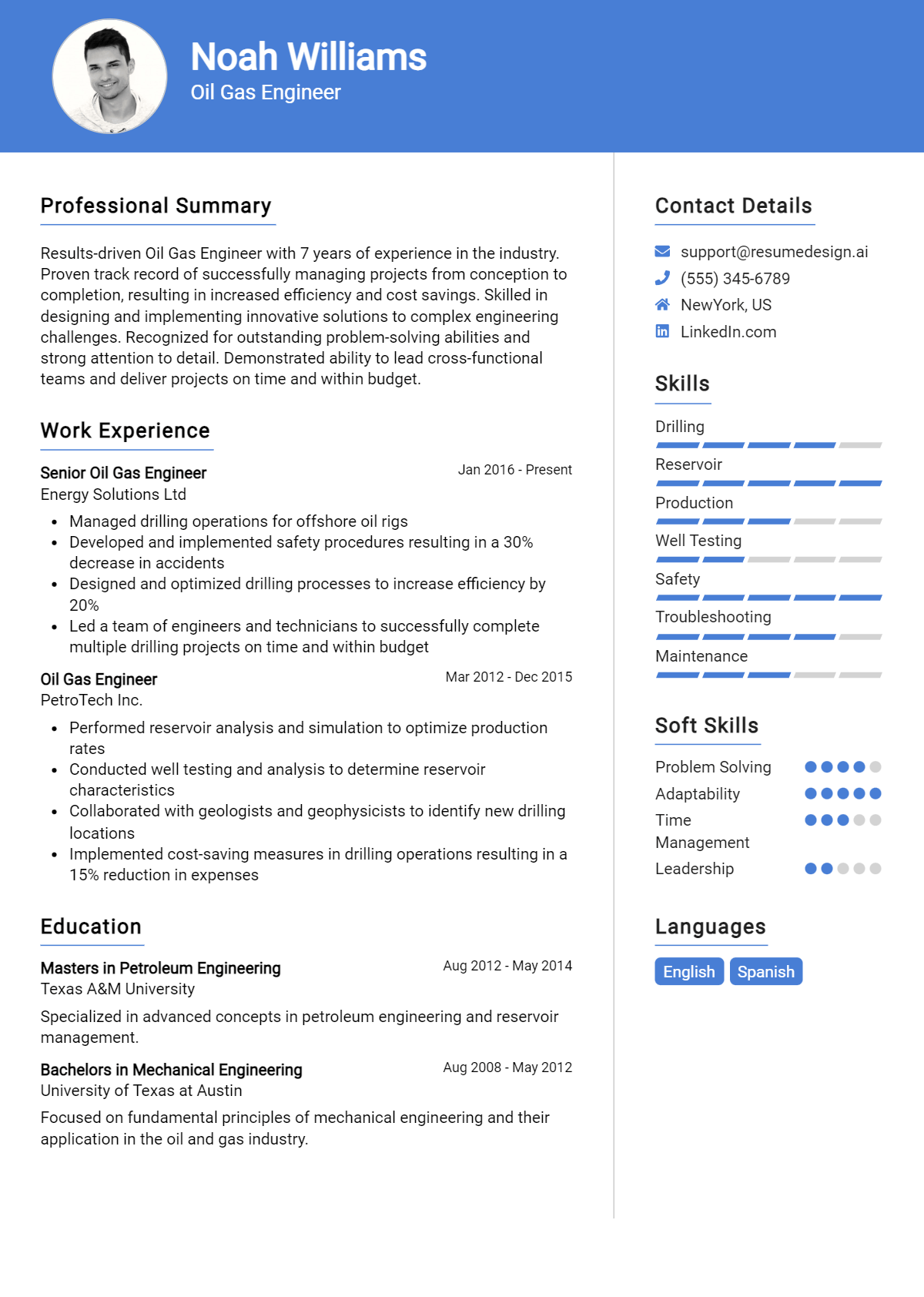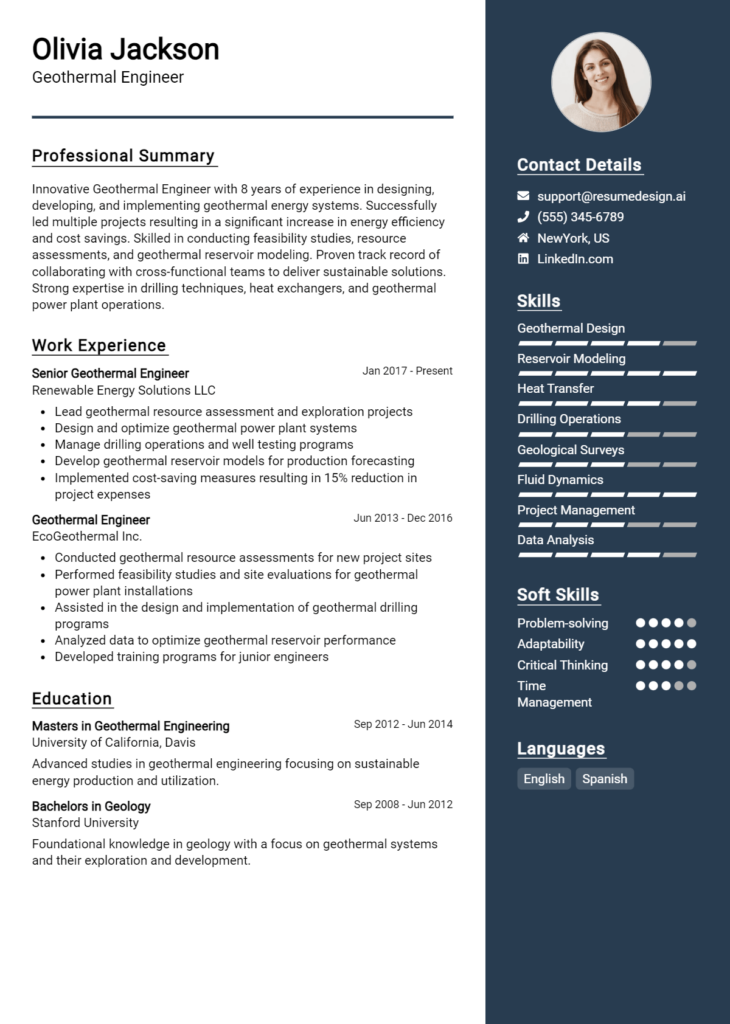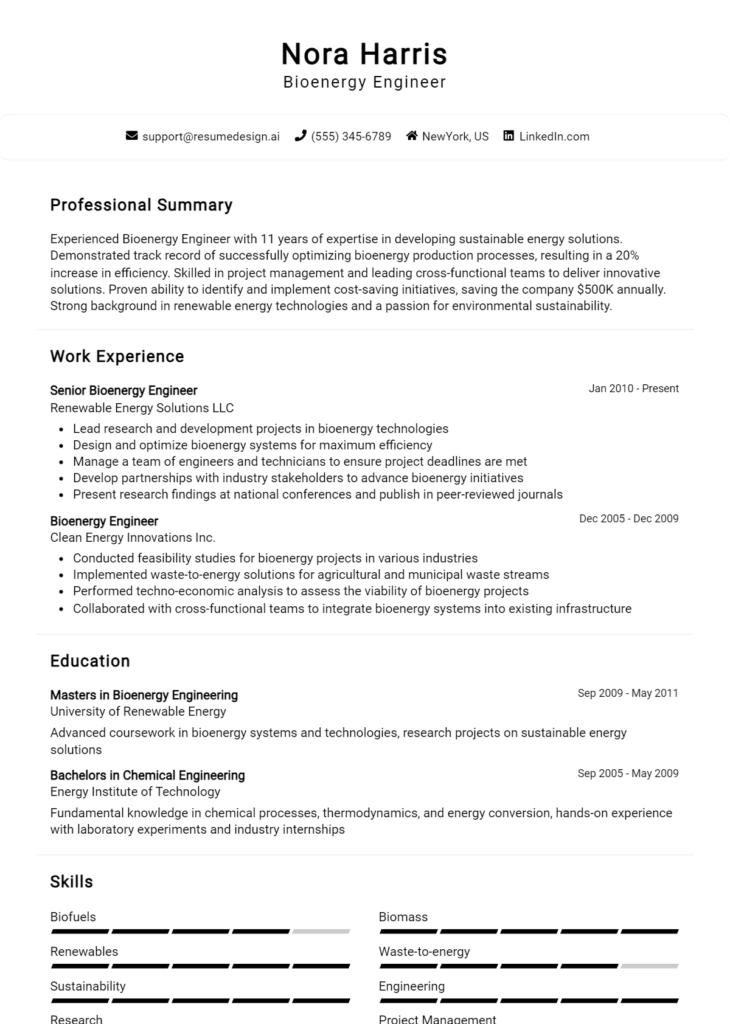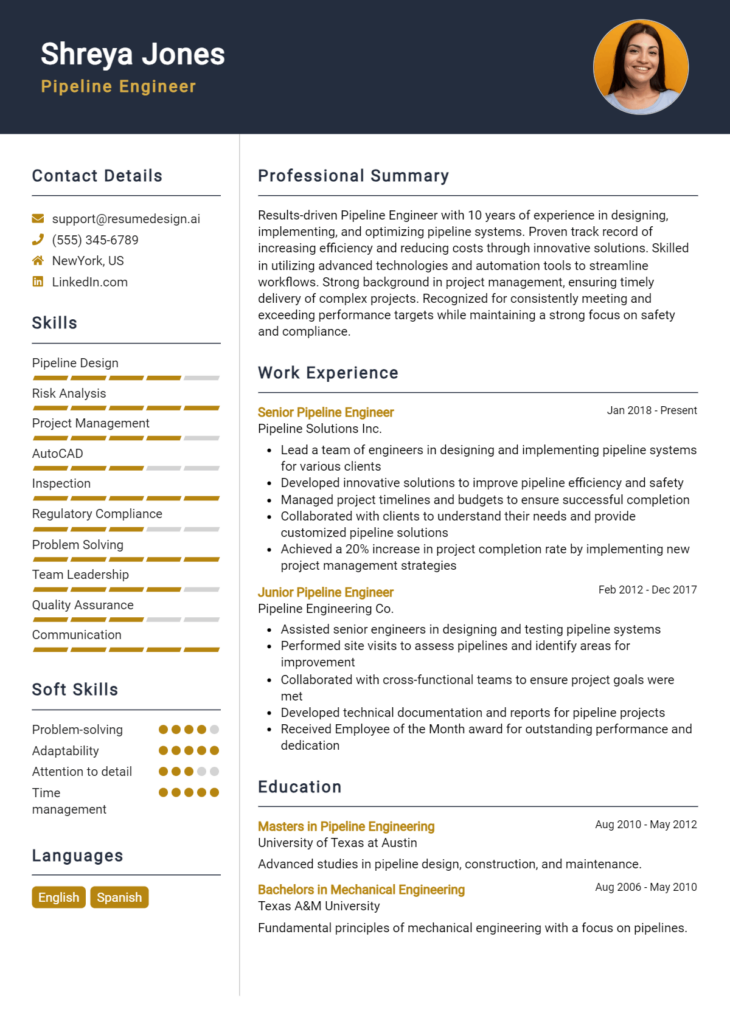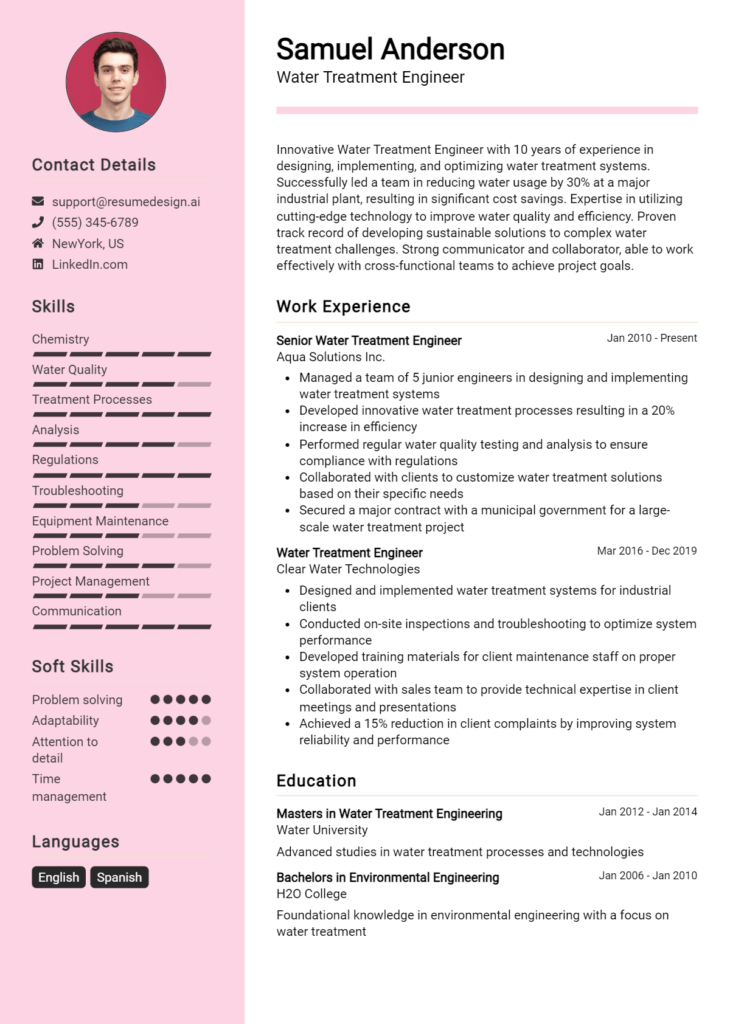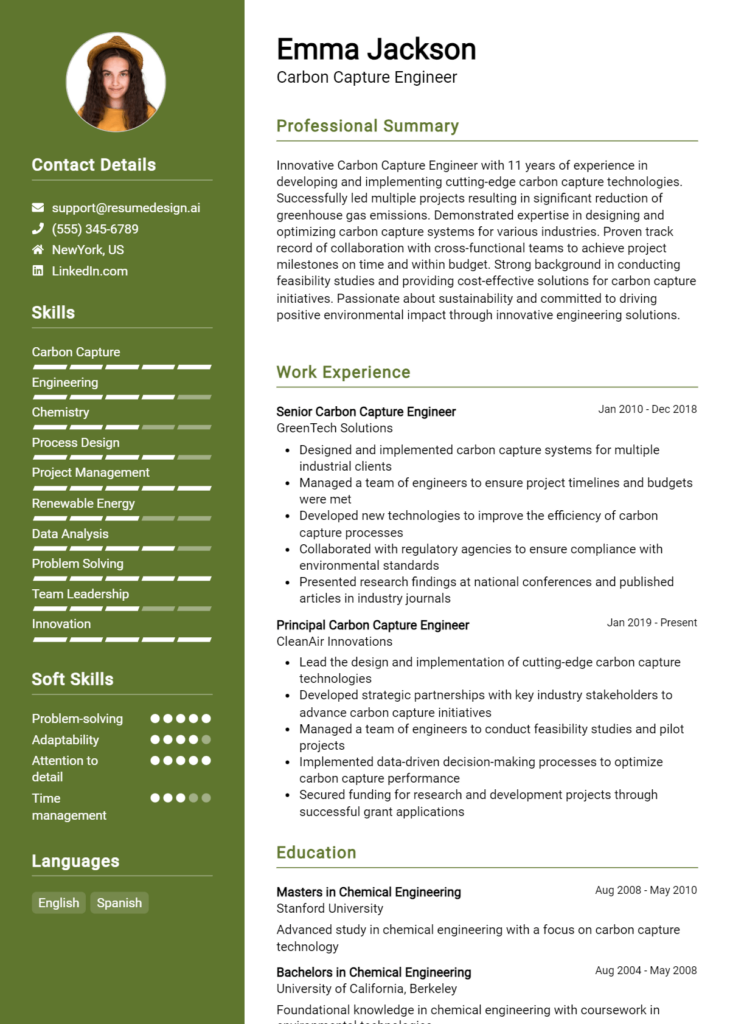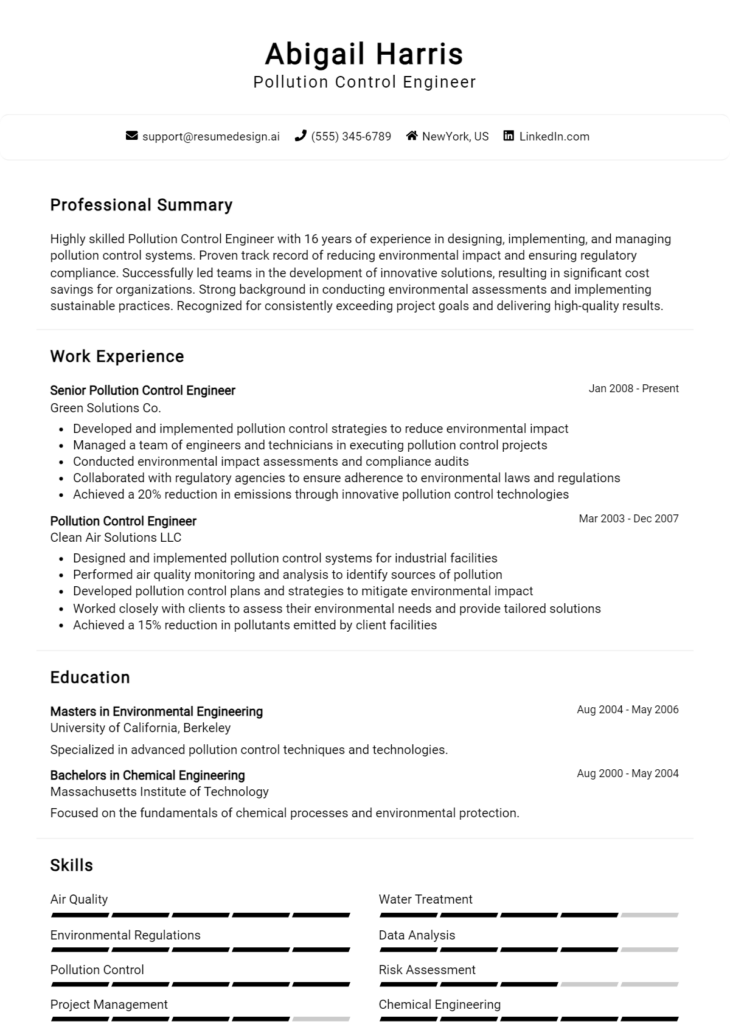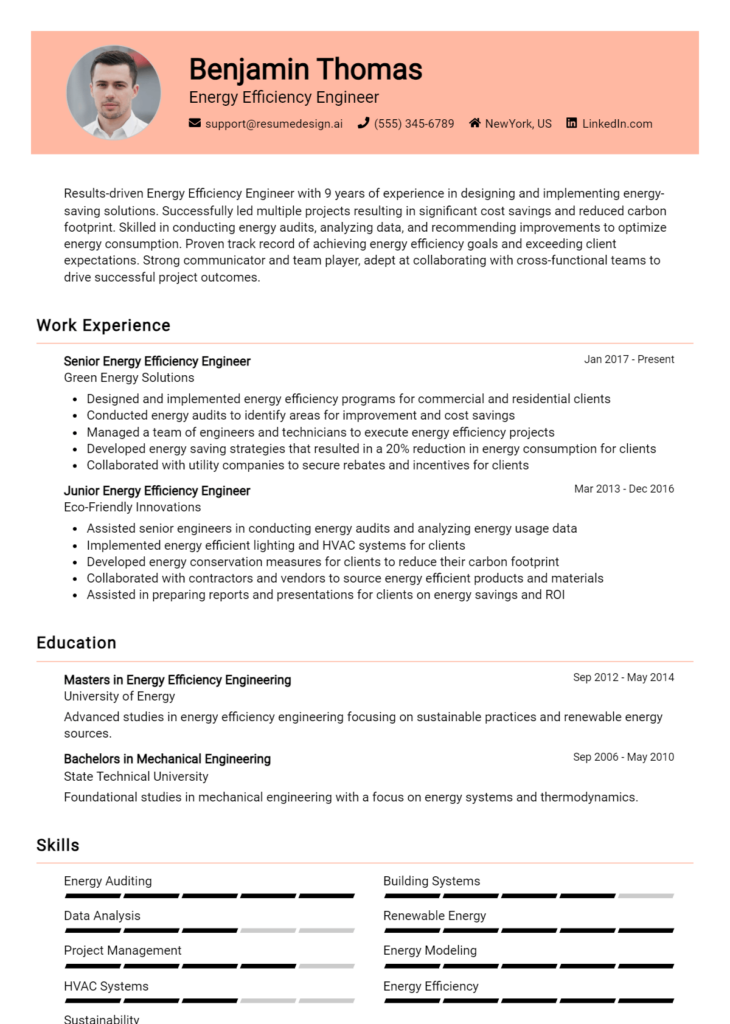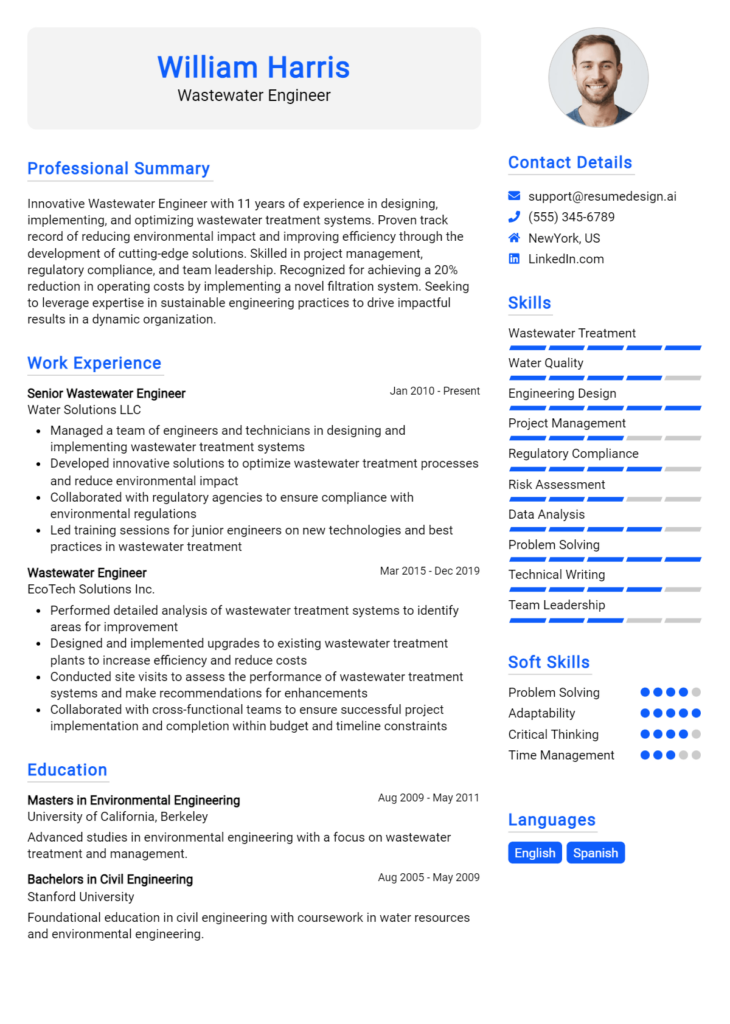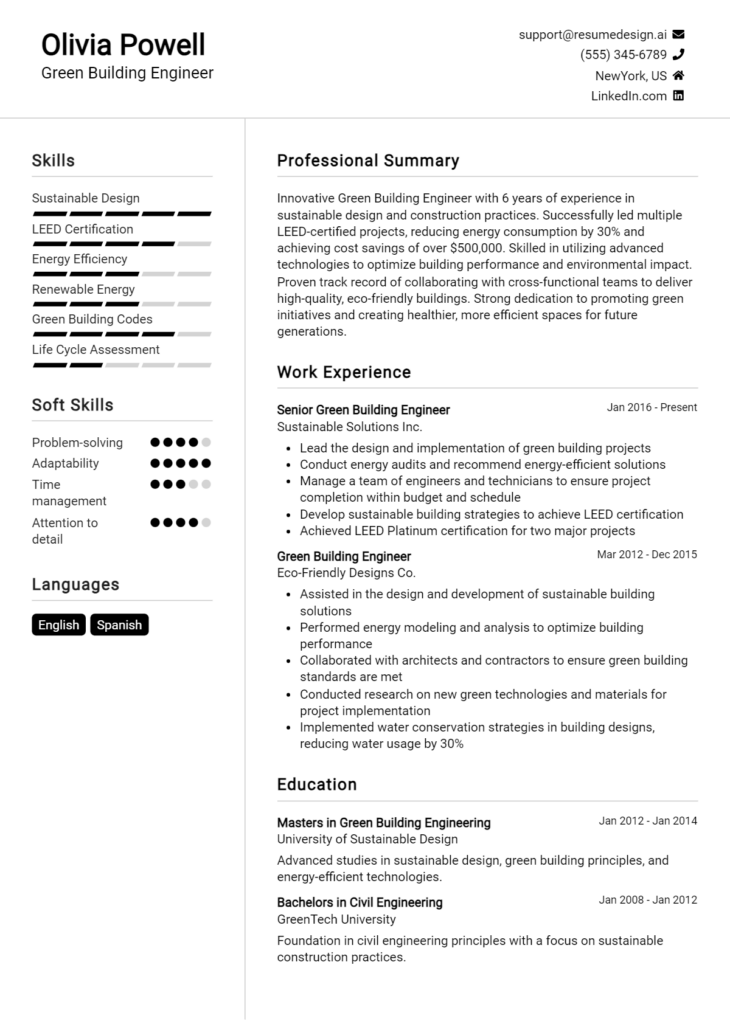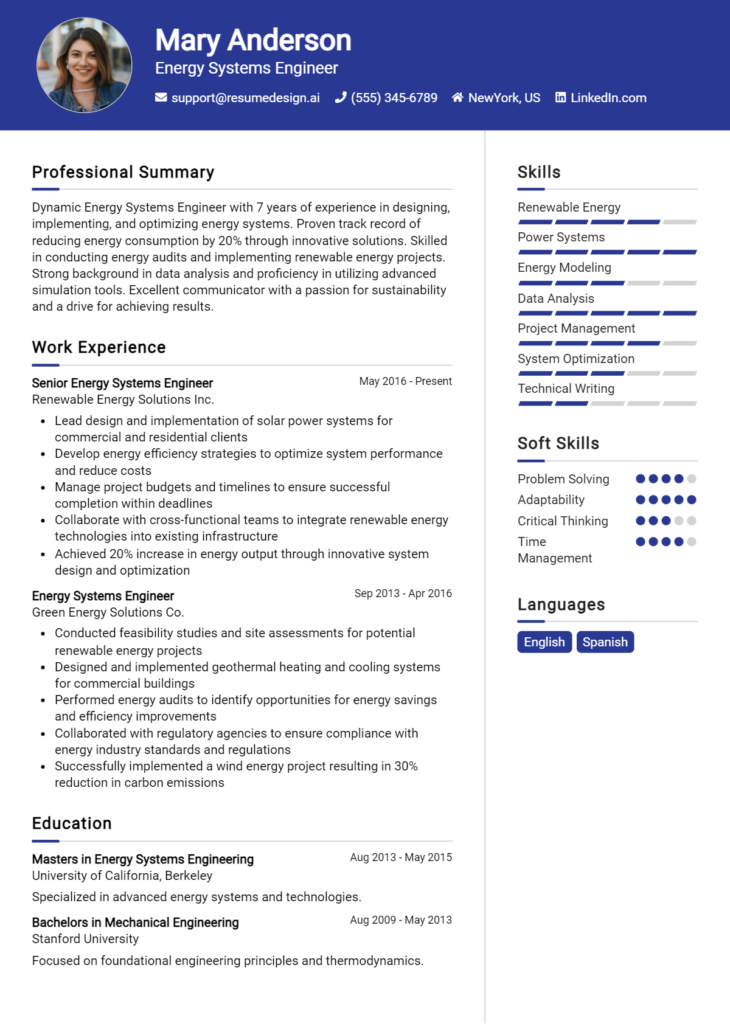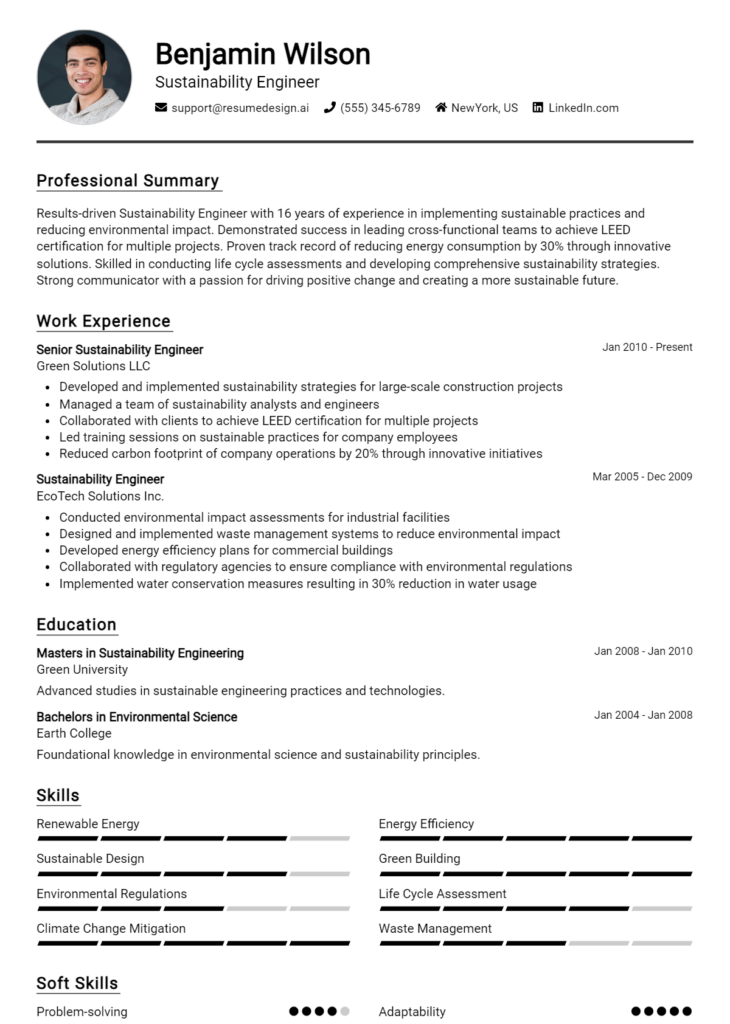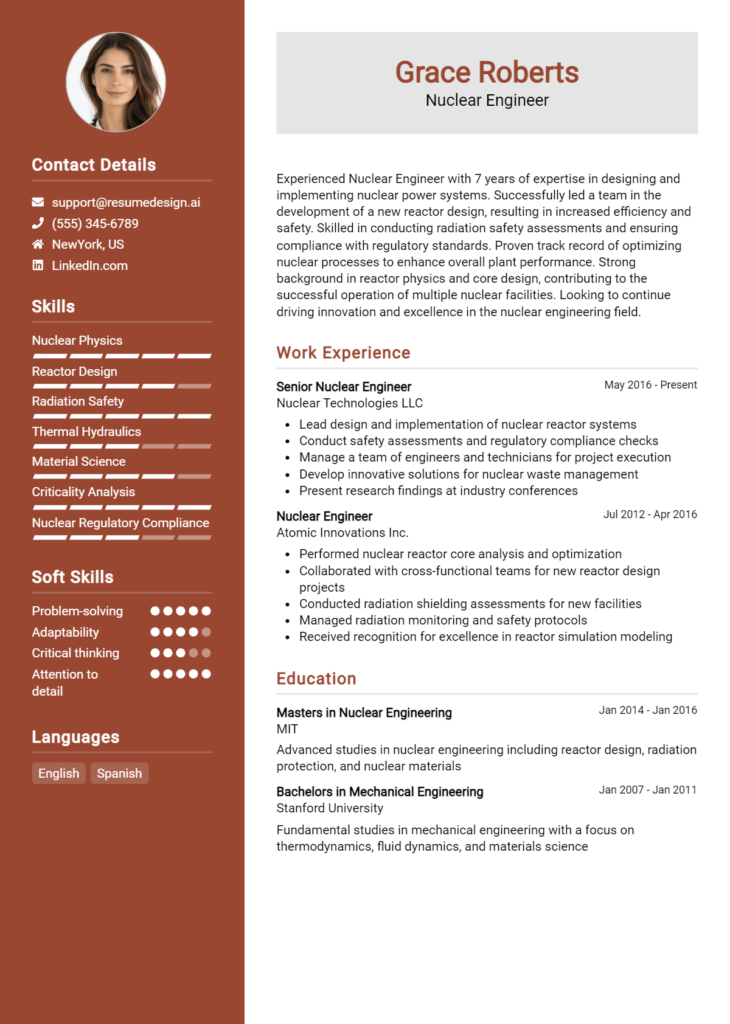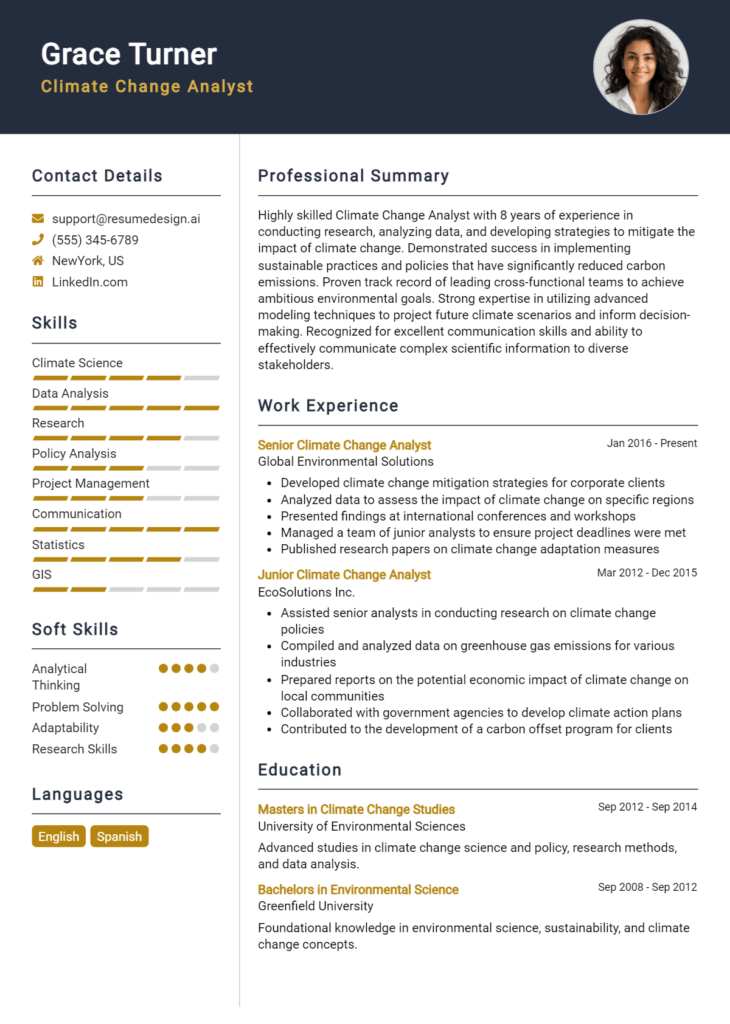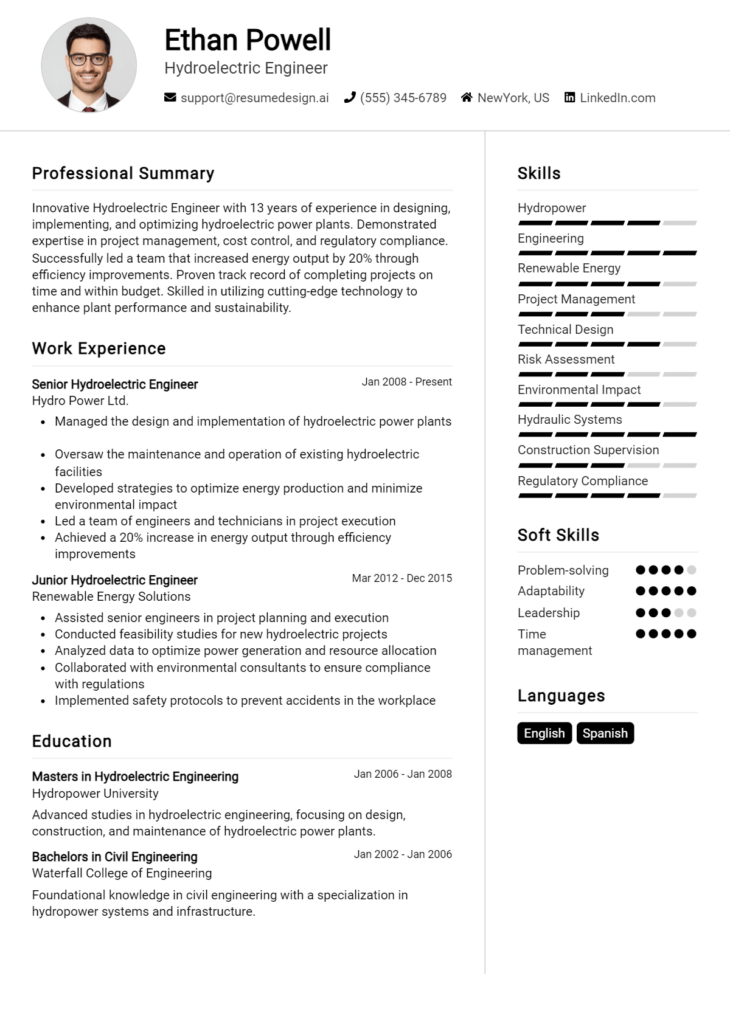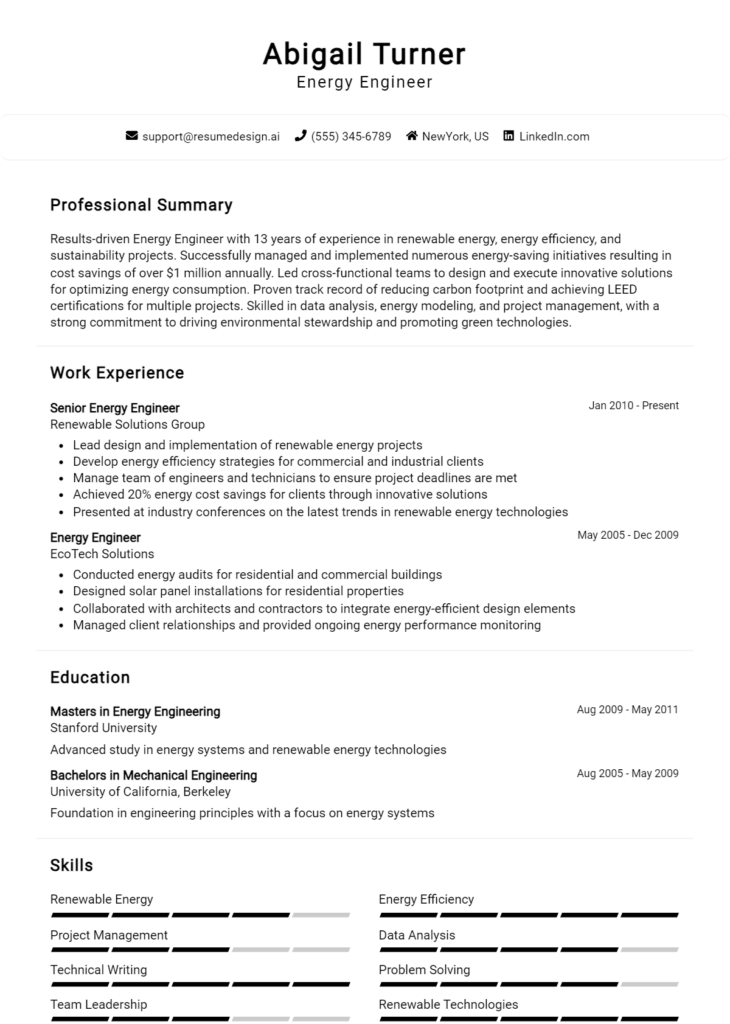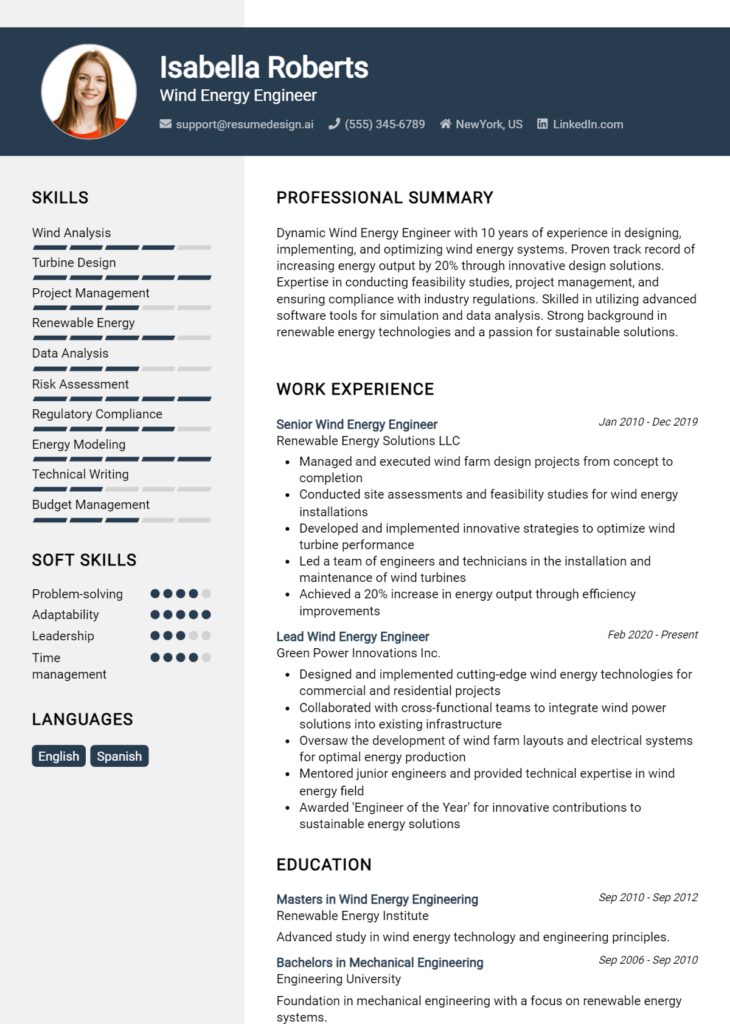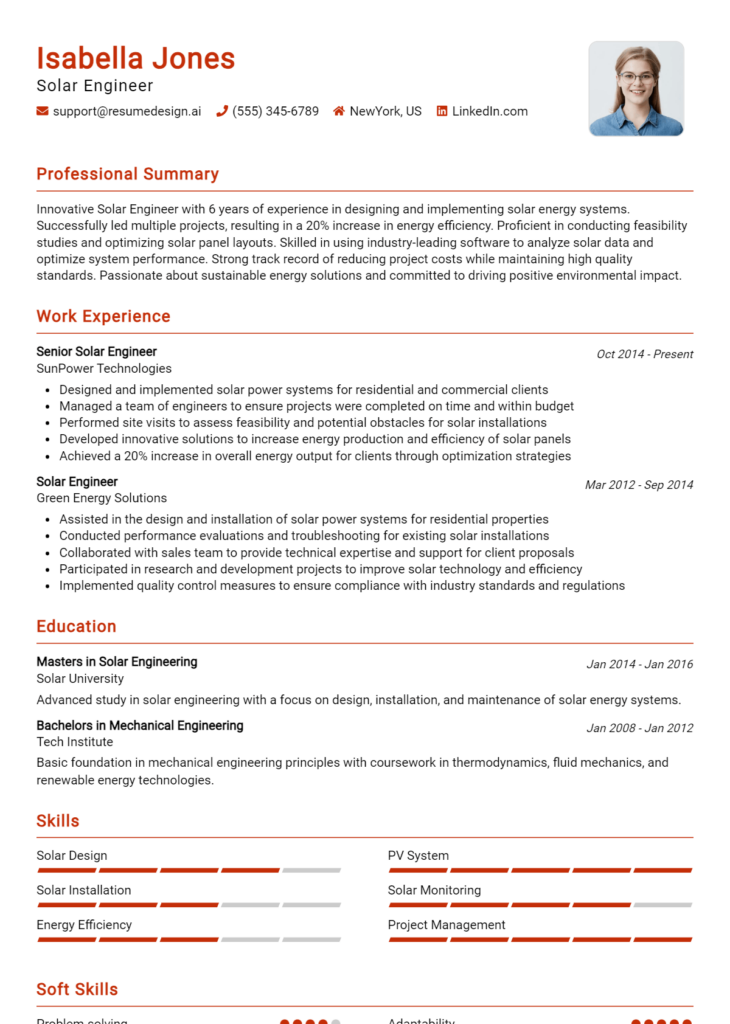Oil & Gas Engineer Core Responsibilities
Oil & Gas Engineers play a crucial role in the exploration, extraction, and production of energy resources, requiring a blend of technical knowledge and operational expertise. They bridge various departments, such as geology, production, and environmental safety, to ensure efficient project execution. Strong problem-solving skills are essential for addressing complex challenges, while attention to detail and analytical capabilities enhance operational performance. A well-structured resume effectively highlights these qualifications, demonstrating the engineer's contribution to organizational goals.
Common Responsibilities Listed on Oil & Gas Engineer Resume
- Design and implement drilling plans and methodologies.
- Conduct feasibility studies and risk assessments for projects.
- Coordinate with geologists and environmental scientists.
- Monitor and optimize production processes and equipment.
- Ensure compliance with industry regulations and safety standards.
- Analyze data to improve extraction techniques and efficiency.
- Participate in budgeting and cost estimation for projects.
- Prepare technical reports and presentations for stakeholders.
- Oversee field operations and manage project timelines.
- Develop and maintain relationships with suppliers and contractors.
- Implement new technologies to enhance operational performance.
- Provide training and mentorship to junior engineers and staff.
High-Level Resume Tips for Oil & Gas Engineer Professionals
In the competitive landscape of the oil and gas industry, a well-crafted resume is crucial for professionals aspiring to stand out among their peers. Your resume is often the first impression you make on potential employers, serving not only as a summary of your skills and experiences but also as a testament to your professionalism and attention to detail. For Oil & Gas Engineer professionals, it is essential that this document effectively reflects both your technical expertise and your achievements in the field. This guide will provide practical and actionable resume tips specifically tailored for those in the oil and gas sector, helping you to create a compelling narrative that captivates hiring managers.
Top Resume Tips for Oil & Gas Engineer Professionals
- Tailor your resume to the job description by incorporating relevant keywords and phrases that match the skills and qualifications sought by the employer.
- Showcase your relevant experience by clearly outlining past roles, responsibilities, and the specific projects you've worked on in the oil and gas sector.
- Quantify your achievements with concrete numbers, such as cost savings, efficiency improvements, or production increases, to demonstrate your impact in previous positions.
- Highlight industry-specific skills, such as knowledge of drilling techniques, reservoir management, and compliance with safety regulations.
- Include relevant certifications and licenses, such as Professional Engineer (PE) status or specialized training in oil and gas technology.
- Utilize a clean and professional format that makes your resume easy to read, ensuring that key information stands out to hiring managers.
- Incorporate a summary statement that encapsulates your career goals and key qualifications, giving employers a snapshot of your professional identity.
- Use action verbs to describe your experiences, such as "designed," "implemented," or "led," to convey a sense of initiative and effectiveness.
- Keep your resume concise, ideally one to two pages, to ensure that employers can quickly glean important information without feeling overwhelmed.
By implementing these tips, you can significantly enhance your resume's effectiveness and increase your chances of landing a job in the Oil & Gas Engineer field. A well-structured and targeted resume not only showcases your qualifications but also communicates your professionalism and readiness to contribute to potential employers, setting you apart in this competitive industry.
Why Resume Headlines & Titles are Important for Oil & Gas Engineer
In the competitive field of oil and gas engineering, a well-crafted resume headline or title is essential for capturing the attention of hiring managers. This succinct phrase serves as the first impression of a candidate's qualifications, summarizing their key strengths and experiences in a compelling way. A strong headline not only addresses the specific role being applied for but also encapsulates the candidate’s expertise in a way that is both concise and relevant. By highlighting critical skills or accomplishments, a powerful resume headline can differentiate a candidate from the crowd and set the tone for the rest of the resume.
Best Practices for Crafting Resume Headlines for Oil & Gas Engineer
- Keep it concise—ideally one to two lines.
- Use industry-specific terminology to demonstrate expertise.
- Highlight key skills or certifications relevant to the position.
- Incorporate measurable achievements when possible.
- Tailor the headline to match the job description precisely.
- Avoid generic phrases; be specific about your role.
- Use action-oriented language to convey a sense of proactivity.
- Ensure it reflects your unique value proposition as a candidate.
Example Resume Headlines for Oil & Gas Engineer
Strong Resume Headlines
"Experienced Oil & Gas Engineer with 10+ Years in Project Management and Cost Optimization"
“Innovative Reservoir Engineer Specializing in Enhanced Oil Recovery Techniques”
“Results-Driven Drilling Engineer with Proven Track Record in Reducing Non-Productive Time”
“Dynamic Production Engineer with Expertise in Data Analytics and Process Improvement”
Weak Resume Headlines
“Engineer Looking for a Job”
“Experienced Professional”
The strong resume headlines are effective because they are specific, showcasing the candidate's relevant skills and experiences in a way that immediately resonates with hiring managers. They highlight measurable achievements and use industry terminology that reflects a deep understanding of the oil and gas sector. In contrast, the weak headlines fail to impress because they lack specificity and do not convey any unique value or expertise. Such generic phrases do not provide hiring managers with a clear picture of what the candidate brings to the table, making it easy for them to overlook these resumes in favor of more compelling options.
Writing an Exceptional Oil & Gas Engineer Resume Summary
A well-crafted resume summary is a crucial element for an Oil & Gas Engineer seeking to make a strong impression on hiring managers. This brief yet powerful statement serves as a snapshot of your professional identity, encapsulating key skills, relevant experience, and notable achievements in the industry. A strong summary quickly captures attention and sets the tone for the rest of your resume, showcasing your suitability for the role and encouraging further review. It is essential that this summary is concise, impactful, and tailored specifically to the job you are applying for, ensuring that it resonates with the unique requirements of the position.
Best Practices for Writing a Oil & Gas Engineer Resume Summary
- Quantify achievements: Use numbers to demonstrate the impact of your work, such as cost savings or efficiency improvements.
- Focus on relevant skills: Highlight technical and soft skills that align with the job description, such as project management, safety compliance, and teamwork.
- Tailor the summary: Customize your summary for each application to reflect the specific requirements and keywords found in the job description.
- Keep it concise: Aim for 2-4 sentences that deliver maximum impact without overwhelming the reader.
- Showcase industry knowledge: Mention specific technologies, processes, or regulations that are pertinent to the Oil & Gas sector.
- Highlight key accomplishments: Briefly reference significant projects or milestones that demonstrate your expertise and contributions to previous employers.
- Maintain a professional tone: Use clear and professional language that conveys confidence and competence.
- Include certifications: Mention any relevant certifications or licenses that enhance your qualifications for the role.
Example Oil & Gas Engineer Resume Summaries
Strong Resume Summaries
Results-driven Oil & Gas Engineer with over 7 years of experience in upstream operations. Successfully led a team in a project that increased oil recovery rates by 15%, resulting in $2 million in additional revenue. Proficient in reservoir simulation and well optimization, with a strong commitment to safety and environmental compliance.
Dynamic Oil & Gas Engineer specializing in pipeline design and integrity management. Achieved a 20% reduction in operational costs through process improvements and risk assessments. Experienced in utilizing advanced software tools for modeling and analysis, ensuring timely project delivery within budget constraints.
Dedicated Oil & Gas Engineer with expertise in drilling engineering and project management. Spearheaded a drilling program that improved efficiency by 25% while adhering to strict safety regulations. Strong background in cross-functional collaboration and stakeholder engagement to drive project success.
Weak Resume Summaries
Oil & Gas Engineer looking for a challenging position in a reputed company. Experienced in various roles in the industry.
Motivated engineer with background in oil and gas. Seeking to leverage skills in a new job opportunity.
The examples provided illustrate the distinction between strong and weak resume summaries. Strong summaries are characterized by specificity, quantifiable results, and relevance to the job at hand, effectively demonstrating the candidate's value to potential employers. In contrast, weak summaries lack detail, fail to quantify achievements, and present a generic overview that does not capture the candidate's unique qualifications, ultimately diminishing their chances of making a memorable impression.
Work Experience Section for Oil & Gas Engineer Resume
The work experience section of an Oil & Gas Engineer resume is vital for demonstrating the candidate's technical skills, leadership abilities, and commitment to delivering high-quality products. This section acts as a platform to showcase how the engineer has applied their expertise in real-world situations, emphasizing the results achieved and the impact made within their teams and organizations. Quantifying accomplishments, such as cost savings, efficiency improvements, or successful project completions, is crucial in distinguishing oneself from other candidates. Additionally, aligning past experiences with industry standards and expectations helps prospective employers gauge the candidate's fit for specific roles in the oil and gas sector.
Best Practices for Oil & Gas Engineer Work Experience
- Highlight relevant technical skills that align with job requirements.
- Use quantifiable achievements to demonstrate impact (e.g., reduced costs by 15%).
- Emphasize leadership roles and team management experiences.
- Include specific projects and technologies used to show expertise.
- Tailor descriptions to industry standards and terminology.
- Showcase collaboration with cross-functional teams and stakeholders.
- Focus on problem-solving abilities and innovative solutions.
- Keep descriptions concise and action-oriented to maintain reader engagement.
Example Work Experiences for Oil & Gas Engineer
Strong Experiences
- Led a team of engineers in the successful completion of a $10 million offshore drilling project, reducing operational costs by 20% through innovative resource management.
- Developed and implemented a predictive maintenance program that decreased equipment downtime by 30%, enhancing overall production efficiency on site.
- Collaborated with geologists and project managers to design a new extraction technique, resulting in a 15% increase in yield without additional environmental impact.
Weak Experiences
- Worked on various projects in the oil and gas sector.
- Participated in team meetings and contributed to discussions.
- Assisted senior engineers with daily tasks.
The examples categorized as strong illustrate clear, quantifiable outcomes and a direct impact on projects, showcasing the candidate's ability to lead and innovate within the oil and gas industry. In contrast, the weak experiences lack specificity and measurable results, making them less compelling to potential employers. By focusing on clear achievements and contributions, candidates can effectively demonstrate their value and expertise in their resumes.
Education and Certifications Section for Oil & Gas Engineer Resume
The education and certifications section of an Oil & Gas Engineer resume serves as a pivotal component that showcases the candidate's academic qualifications, industry-relevant certifications, and dedication to continuous professional development. This section not only highlights a candidate’s formal education but also underscores their commitment to staying updated with industry standards and technological advancements. By providing pertinent coursework, recognized certifications, and specialized training, candidates can significantly enhance their credibility and demonstrate their alignment with the specific requirements of the oil and gas sector.
Best Practices for Oil & Gas Engineer Education and Certifications
- Prioritize relevant degrees such as Petroleum Engineering, Chemical Engineering, or Geosciences.
- Include industry-recognized certifications like the Engineer-in-Training (EIT), Professional Engineer (PE), or certifications from organizations such as the Society of Petroleum Engineers (SPE).
- Highlight specific coursework that is directly applicable to oil and gas engineering, such as Reservoir Engineering or Drilling Technologies.
- Be specific about the level of education, including the name of the institution, degree type, and graduation date.
- Keep the list of certifications updated and relevant to current industry practices.
- Consider including specialized training or workshops that enhance practical skills, such as safety training or software proficiency.
- Use clear formatting to separate degrees and certifications for better readability.
- Avoid listing educational qualifications that do not pertain to the oil and gas field or are outdated.
Example Education and Certifications for Oil & Gas Engineer
Strong Examples
- Bachelor of Science in Petroleum Engineering, University of Texas at Austin, 2020
- Certified Petroleum Engineer (CPE) - Society of Petroleum Engineers, 2021
- Master's Coursework in Advanced Reservoir Simulation, University of Calgary
- OSHA HAZWOPER Certification, 2022
Weak Examples
- Bachelor of Arts in History, University of Florida, 2015
- Certification in Basic First Aid, 2018
- Online Course in Introduction to Cooking, 2020
- High School Diploma, 2010
The strong examples are considered effective because they directly relate to the oil and gas engineering field, showcasing relevant degrees, recognized certifications, and applicable coursework that illustrate the candidate's expertise. In contrast, the weak examples demonstrate a lack of relevance to the oil and gas industry, featuring qualifications that do not contribute to the candidate's credibility or alignment with the engineering role, such as unrelated degrees or certifications in non-industry subjects.
Top Skills & Keywords for Oil & Gas Engineer Resume
In the competitive field of oil and gas engineering, a well-crafted resume is essential for showcasing your expertise and standing out to potential employers. Highlighting the right skills is crucial, as they reflect your technical abilities, problem-solving capabilities, and adaptability in a fast-paced industry. An effective resume should not only emphasize your hard skills, which demonstrate your technical knowledge and proficiency, but also your soft skills, which indicate your ability to work well with teams, communicate effectively, and manage projects. By strategically incorporating key skills into your resume, you can enhance your chances of landing interviews and advancing your career in this dynamic sector.
Top Hard & Soft Skills for Oil & Gas Engineer
Soft Skills
- Problem-solving
- Communication
- Teamwork and collaboration
- Adaptability
- Critical thinking
- Leadership
- Time management
- Project management
- Attention to detail
- Negotiation skills
- Interpersonal skills
- Creativity
- Conflict resolution
- Decision-making
- Initiative
Hard Skills
- Reservoir engineering
- Drilling engineering
- Production optimization
- Geophysical analysis
- Project management software (e.g., Primavera, MS Project)
- Environmental regulations and compliance
- Process simulation software (e.g., HYSYS, Aspen Plus)
- Data analysis and interpretation
- Well testing and evaluation
- Pipeline design and integrity
- Risk assessment and management
- CAD software proficiency (e.g., AutoCAD)
- Material science and selection
- Cost estimation and budgeting
- Oil and gas industry regulations
For further insights into refining your skills or detailing your work experience, consider exploring additional resources that can help you craft a standout resume tailored to the oil and gas sector.
Stand Out with a Winning Oil & Gas Engineer Cover Letter
Dear Hiring Manager,
I am writing to express my interest in the Oil & Gas Engineer position at [Company Name] as advertised on [Job Board/Company Website]. With a Bachelor’s degree in Petroleum Engineering and over five years of experience working in both offshore and onshore projects, I am excited about the opportunity to contribute to your team. My background in drilling operations, reservoir management, and project planning has equipped me with a comprehensive skill set that aligns with the demands of this role.
At my previous position with [Previous Company Name], I successfully led a team in optimizing drilling techniques that resulted in a 15% reduction in costs while increasing production efficiency by 20%. I am well-versed in utilizing advanced engineering software and simulation tools to analyze data and make informed decisions that enhance operational performance. My hands-on experience in conducting feasibility studies and collaborating with cross-functional teams has not only honed my technical skills but has also strengthened my ability to communicate complex concepts clearly to stakeholders at all levels.
Furthermore, I am deeply committed to safety and environmental sustainability in all engineering practices. I have actively participated in initiatives that promote safe working environments and reduce environmental impact, ensuring compliance with regulatory standards. I am excited about the possibility of bringing my expertise in innovative solutions and my dedication to safety to [Company Name], a leader in the oil and gas industry.
I look forward to the opportunity to discuss how my skills and experiences align with the needs of your team. Thank you for considering my application. I am eager to contribute to the ongoing success of [Company Name] and to the exciting challenges that lie ahead in the oil and gas sector.
Sincerely,
[Your Name]
[Your Contact Information]
Common Mistakes to Avoid in a Oil & Gas Engineer Resume
When crafting a resume for an Oil & Gas Engineer position, it's crucial to present your qualifications and experience in a clear and compelling manner. However, many candidates make common mistakes that can undermine their chances of landing an interview. By avoiding these pitfalls, you can enhance your resume and better showcase your skills in this competitive field.
Using Generic Job Descriptions: Failing to tailor job descriptions to specific roles can make your resume seem unfocused. Highlight relevant responsibilities and achievements that align with the job you’re applying for.
Neglecting Industry-Specific Keywords: Many employers use Applicant Tracking Systems (ATS) to filter resumes. Not incorporating industry-specific keywords can lead to your resume being overlooked.
Overloading on Technical Jargon: While technical skills are vital in the oil and gas sector, excessive jargon can alienate hiring managers who may not be familiar with every technical term. Aim for a balance between technical accuracy and readability.
Ignoring Soft Skills: Focusing solely on technical abilities can give an incomplete picture of your qualifications. Soft skills like teamwork, communication, and problem-solving are equally important in collaborative engineering environments.
Listing Duties Instead of Achievements: Simply listing job duties can make your resume mundane. Instead, emphasize your achievements and the impact you made in your previous roles, using quantifiable results where possible.
Failure to Highlight Certifications and Training: The oil and gas industry often requires specific certifications. Not highlighting these qualifications can be a significant oversight, as they demonstrate your commitment to professional development.
Using an Unprofessional Format: A cluttered or overly complex resume format can distract from your qualifications. Stick to a clean, professional layout that enhances readability and highlights key information.
Omitting Relevant Projects: If you've worked on significant projects, particularly those that relate to the job you're applying for, be sure to include them. This demonstrates your hands-on experience and ability to apply your skills in real-world scenarios.
Conclusion
As we have explored, the role of an Oil & Gas Engineer is crucial in the energy sector, encompassing various responsibilities like designing, developing, and maintaining extraction processes for oil and gas. Key skills required for this position include technical expertise in engineering principles, strong problem-solving abilities, and effective communication skills. Additionally, familiarity with safety regulations and environmental considerations is essential for ensuring sustainable practices within the industry.
Given the competitive nature of the job market, having an impactful resume is vital for standing out to potential employers. We encourage you to take a moment to review your Oil & Gas Engineer resume. Make sure it highlights your relevant skills, experiences, and accomplishments effectively.
To aid in your resume crafting journey, consider utilizing the following resources:
- Explore a variety of resume templates to find a design that suits your professional style.
- Use the resume builder for an intuitive step-by-step process to create a polished resume.
- Check out resume examples specific to the Oil & Gas industry for inspiration on how to present your experience.
- Don't forget to enhance your application with a compelling cover letter template that communicates your passion for the field.
Take action today to refine your resume and position yourself for success in the Oil & Gas sector!

